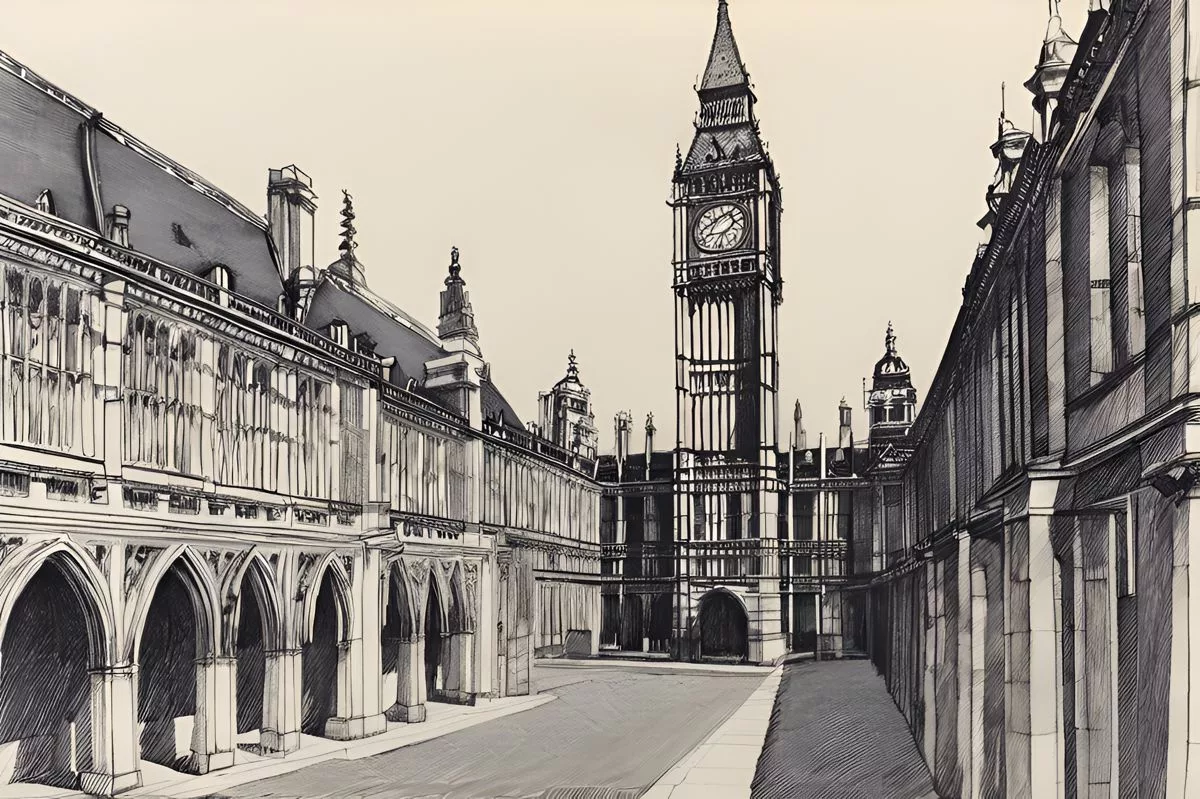South Africa’s Parliament is a busy center of legislative activity, with a packed schedule that includes Q&A sessions, committee meetings, debates, and evaluations of bills. The proceedings play an important role in Parliament’s examination and oversight of executive actions, as stipulated by the Constitution. This week’s schedule includes presentations by government officials, debates on national and international issues, evaluations of fiscal proposals, and parliamentary group meetings. As citizens, it is important to stay engaged with these proceedings to ensure a better future for the country.
What Happens Inside South Africa’s Parliament?
South Africa’s Parliament is a bustling hub of legislative activity, with a packed schedule that includes Q&A sessions with government officials, committee evaluations on bills, debates on national and international issues, and various committee meetings. These proceedings play a pivotal role in Parliament’s examination and oversight of executive actions, as stipulated by the Constitution, and it is essential for citizens to stay engaged with them to ensure a better future for the country.
Nestled at the core of South Africa’s democracy, the Parliament thrives on a bustling and intricate schedule. The week commencing from 10th March 2024 is no different. This comprehensive piece will walk you through the myriad of legislative activities, offering insight into the Parliament’s multifaceted schedule.
Deputy President Sheds Light on National Affairs
In the aftermath of Sunday’s announcement, Deputy President Paul Mashatile is gearing up for his presentation before the National Council of Provinces (NCOP) in a hybrid gathering, planned for 14:00 on Tuesday. The Deputy President is poised to offer verbal responses to a sequence of six concerns, each accompanied by four follow-up inquiries. This process aims to elucidate the government’s legislative maneuvers and offer updates on pressing national matters.
Alongside this, Wednesday welcomes ministers from Governance Cluster 3, who are set to present before the National Assembly (NA) at 15:00. This group incorporates critical departments, namely Cooperative Governance and Traditional Affairs, Women, Youth and Persons with Disabilities, and more. Their mission? To verbalize responses to the inquiries posed in a hybrid plenary.
These Q&A sessions are not a mere formality. They play a pivotal role in Parliament’s examination and oversight of executive actions, as stipulated by Section 92(2) of the Constitution, which holds all Cabinet members answerable to Parliament.
A Packed Parliamentary Agenda
Regardless, the parliamentary program for this week doesn’t end here. It also includes a debate on International Women’s Day, committee evaluations on the Electoral Matters Amendment Bill, resolution of queries on reports discussed during the NA mini-plenary sessions, and the scheduling committee meetings of both parliamentary houses.
The NA’s hybrid plenary session on Tuesday anticipates reviewing an array of committee reports on bills under consideration by the House, including the Portfolio Committee on Home Affairs’ report on the Electoral Matters Amendment Bill. Besides, the House will mark International Women’s Day with an energetic debate, envisioning progress towards a better Africa and the world.
Reviewing Fiscal Framework and Proposals
Wednesday’s schedule for both the NA and NCOP encompasses a vital evaluation of the 2024 Fiscal Framework and Revenue Proposals and the Standing Committee on Finance’s report. Furthermore, the NCOP plenary session is poised to handle motions and the report of the Joint Standing Committee on Defence.
To wind up the week, Thursday and Friday witness both the NA and NCOP conducting their respective Programme Committee and Parliamentary Group on International Relations meetings. These meetings aim to orchestrate Parliament’s operations and discuss international issues relevant to Parliament and South Africa.
The Intricacies of Democracy
While this article provides an overall view, it merely grazes the surface of the elaborate mechanics powering South Africa’s democracy. For this week alone, a staggering thirty-eight committee meetings are planned, covering subjects spanning from financial appropriations to social development, agricultural reforms, defense, transportation, and beyond.
To sum up, the corridors of Parliament are teeming with activity. Each day ushers in novel discussions, robust debates, and ongoing dialogue in the quest for a better South Africa. As citizens, it is vital to stay abreast and engaged with these proceedings, as this is where the country’s future is ceaselessly moulded.
Every Voice Matters
Remember, the Bill of Rights upholds your freedom of expression, provided this liberty is not exploited. So, participate, express your views, and make an impact because every voice counts in a vibrant democracy such as ours. For more comprehensive details on the meetings and activities, consider visiting Parliament’s official website.
What is the schedule like for South Africa’s Parliament?
South Africa’s Parliament has a packed schedule that includes Q&A sessions with government officials, committee evaluations on bills, debates on national and international issues, and various committee meetings. These proceedings play a pivotal role in Parliament’s examination and oversight of executive actions, as stipulated by the Constitution, and it is essential for citizens to stay engaged with them to ensure a better future for the country.
What is the purpose of Q&A sessions with government officials?
Q&A sessions with government officials play a pivotal role in Parliament’s examination and oversight of executive actions, as stipulated by Section 92(2) of the Constitution, which holds all Cabinet members answerable to Parliament. They provide an opportunity for government officials to offer updates on pressing national matters and to respond to concerns and inquiries posed by the National Council of Provinces (NCOP) and National Assembly (NA).
What other activities are included in the parliamentary agenda?
In addition to Q&A sessions, the parliamentary agenda includes committee evaluations on bills, debates on national and international issues, resolution of queries on reports discussed during the NA mini-plenary sessions, and scheduling committee meetings of both parliamentary houses. There will also be evaluations of the Fiscal Framework and Revenue Proposals and the Standing Committee on Finance’s report.
How many committee meetings are planned for this week?
A staggering thirty-eight committee meetings are planned for this week alone, covering subjects spanning from financial appropriations to social development, agricultural reforms, defense, transportation, and beyond.
What is the purpose of Program Committee and Parliamentary Group on International Relations meetings?
Program Committee and Parliamentary Group on International Relations meetings aim to orchestrate Parliament’s operations and discuss international issues relevant to Parliament and South Africa.
Where can I find more information on meetings and activities in Parliament?
For more comprehensive details on the meetings and activities, consider visiting Parliament’s official website.












